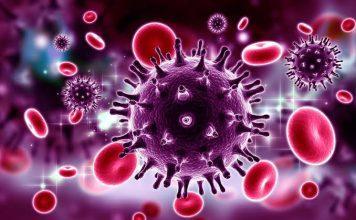The World Health Organisation (WHO) has raised concerns on World Health Day about the persistently high number of people aged 15 and above living with HIV. In 2021, an estimated 24.3 million individuals (3.4 percent of the total population) were living with HIV compared to 15.6 million in 2005.
Despite progress made in improving health in the African region, particularly in reducing mother and child mortality rates, HIV transmission rates have remained high. The WHO Regional Director for Africa, Dr Matshidiso Moeti, emphasized the disparities in access to reproductive, maternal, newborn, child, and adolescent healthcare interventions, with rural, impoverished, and hard-to-reach communities being the most disadvantaged.
Additionally, she expressed concern about the financial burden of healthcare, with approximately 8 percent of the African population facing excessive health expenses. Dr Moeti called on Member States to uphold the right to health as established in the WHO Constitution and agreed upon by all nations in 1948.
she stated , “the right to health is a universal right of all human beings, regardless of race, colour, sex, language, religion, political or other opinion, national or social origin, property, birth, or another status.”
During their year-long celebration, which commenced in 2023, she mentioned that it was a period filled with joyful events and contemplation.
They have taken the time to reflect on the accomplishments in public health, which have significantly enhanced the well-being of communities over the past seventy years.
Furthermore, they have gathered the determination to confront the upcoming health issues that are expected to arise in the next seventy-five years.
She highlighted that the theme for 2024 was “My Health, My Right”, mentioning that member states have made notable advancements in improving health outcomes for their populations in recent years, with more mothers and children surviving than in previous decades.
She stated that, “From 2000 to 2020, the life expectancy of African women increased from 54 to 67 years; the maternal mortality ratio decreased by 33 percent (from 788 to 531 maternal deaths per 100,000 lives), and the number of children dying before the age of 5 was reduced by 50 per cent from 2000 to 2017.
“Between 2011 and 2021, the number of new HIV infections and AIDS-related deaths decreased by 44 per cent and 55 per cent, respectively, across Africa, and the number of TB deaths decreased by 26 per cent. In addition, several diseases are on the verge of eradication and elimination, including polio, guinea worm disease, as well as maternal and neonatal tetanus.”
Moet also commended member states for their efforts to speed up advancements towards achieving Universal Health Coverage (UHC).
“They are reforming their health policies and revamping legislative and regulatory frameworks, including National Health Insurance Schemes (NHIS) and Social Health Insurance (SHI) schemes to reduce catastrophic out-of-pocket health expenditures.
“Several countries have started operationalizing an integrated Life Stages Approach, which prioritizes the health of individuals at every stage of their life and the care needed at any time. “Health is not only a fundamental human right but also central to peace and prosperity. Thus, addressing health inequities requires intentional efforts.”
She stated that WHO will collaborate with everyone to enhance health governance and address discrimination and inequalities in health.
“We will continue to collaborate across sectors on bold solutions toward the universal coverage of high-quality health care for everyone, everywhere – because it is part of our human rights.”
